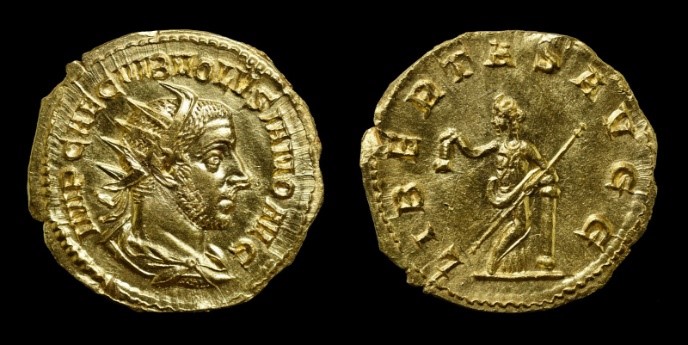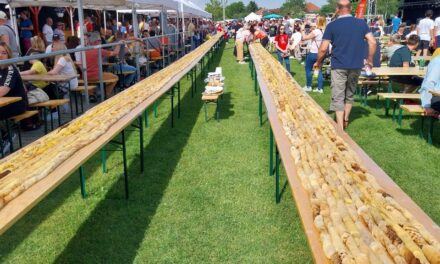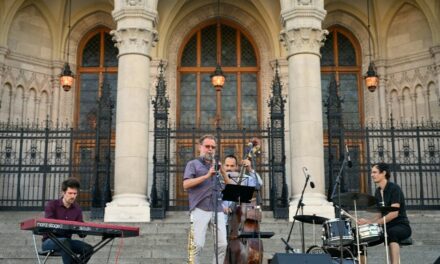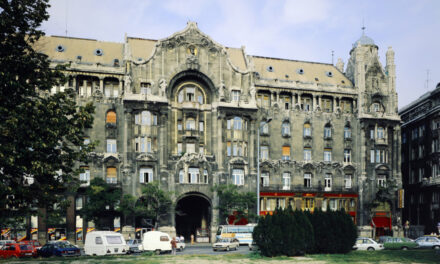The archaeologists of the Rippl-Rónai Museum in Kaposvár found a Roman gold coin, extremely rare and in excellent condition, in the vicinity of Lake Balaton. The experts did not reveal the exact location of the site, as there are likely to be more valuable finds hidden in the depths of the earth, and therefore the excavation will continue.
Transdanubia and thus the Balaton area also came under Roman rule in 9 BC, when Augustus' adopted son, Tiberius (the later emperor), occupied the area at the head of his legions, which was annexed to the Roman Empire as a province.
The province received the name Pannonia during the reign of Emperor Claudius (41 AD to 54 AD), which was shared by Trajan, the "optimus princeps" (reigned from 98 AD to 117 AD) into two parts. Transdanubia became an independent province under the name of Pannonia Inferior (Lower Pannonia), with Aquincum as its seat and headed by an imperial governor (legati augusti propraetor).
The areas beyond Limes in the i. s. From the end of the 1st century and the beginning of the 2nd century, the Romans began to "populate" it, founding several important settlements, including Gorsium-Herculia, Savaria, or Brigetio, for example.
BALATON – LATIN NAMED LACUS PELSO – was primarily popular with wealthy Roman nobles, who built several elegant villas on the shores of the lake between the 2nd and 4th centuries, according to archaeological evidence.
Fleeing from the barbarian raids that intensified from the 2nd century, the villa owners often buried their valuable treasures - probably in the hope of returning.
According to the museum's announcement, the unique gold coin was found in February this year with the help of a metal detector.
THE COIN WAS Struck BY THE EMPEROR VOLUSIANUS, WHO REIGNED IN THE MID-3RD CENTURY.
The obverse of this extremely good condition, so-called mint coin, shows the portrait of the emperor with a ray crown, marked "Imp. C. Volusianus Aug.” inscription (Imperator Caesar Volusianus Augustus, the ed.) will be included. The reverse of the coin is engraved with the figure of Libertas, the goddess of freedom.

Source: Rippl-Rónai Museum/ Krisztián Balla
The coin is a so-called double-weight gold coin, cast from high-purity gold, with an estimated value of HUF 5 million. Volusianus only for an extremely short time i. s. Between November 251 and August 253, he was at the head of the empire together with his father, Trebonianus Gallus, which is why the coins minted by him are rarer.
The gold Volusian coins are extremely rare. The coin recently found at Lake Balaton is the only Volusian gold in the possession of the Rippl-Rónai Museum.
Tamás Elter's entire article can be read on the Origo portal.












